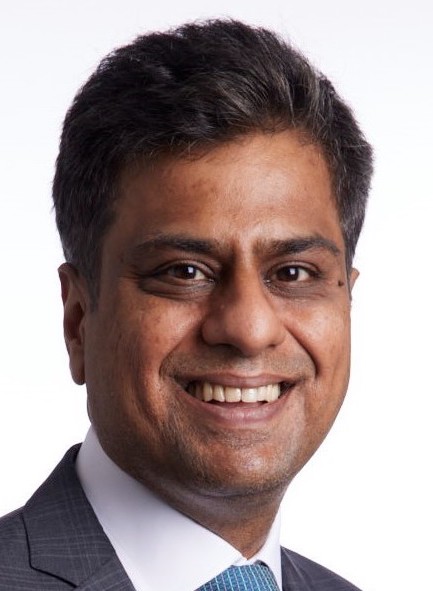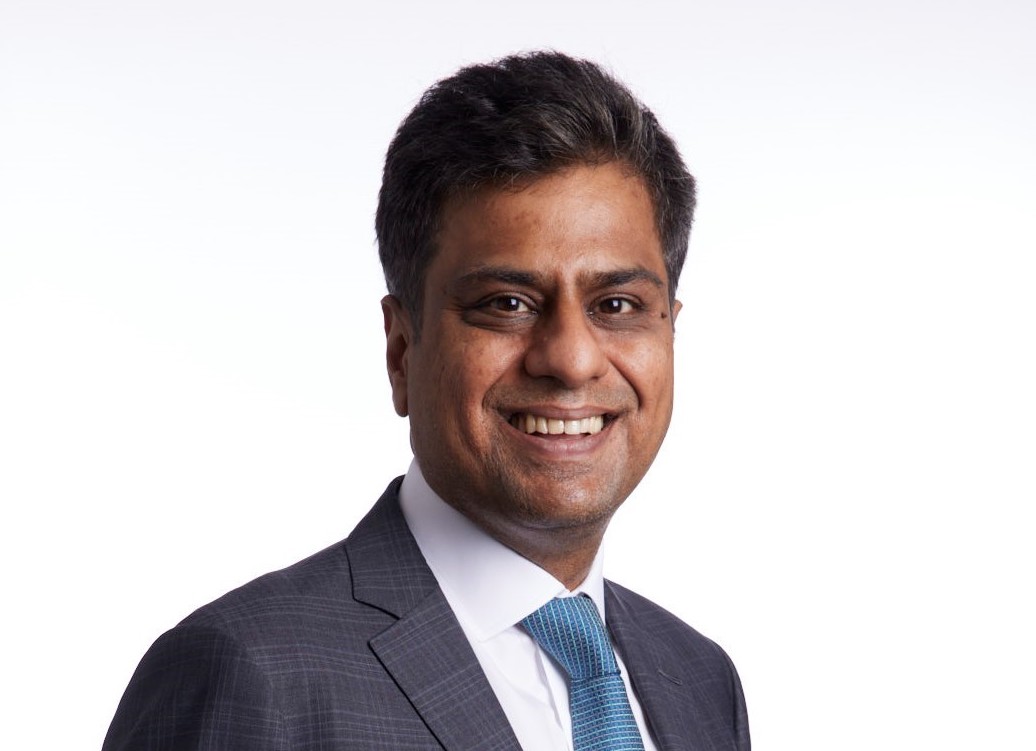FSSA IM Director Vinay Agarwal: Investing in India and ESG in India
Q&A on investing in India and ESG in India by FSSA Investment Managers with FSSA IM Director Vinay Agarwal (August 2021):
FSSA Investment Managers (FSSA IM) is an autonomous team within First Sentier Investors. FSSA IM are bottom-up investors, using fundamental research and analysis to construct high-conviction portfolios, conducting more than a thousand direct company meetings a year, seeking to identify high quality companies that they can invest in for the long term. FSSA IM manages $38.7 billion globally (30/6/21).
FSSA IM Director Vinay Agarwal: Investing in India and ESG in India

1. What would you tell global investors who are keen to invest in India?
Vinay Agarwal: In our view, several aspects make India an attractive market to invest in over the long term. Firstly, the majority of listed companies are privately owned rather than being state owned. As minority shareholders, we find it easier to feel aligned with private owners who don’t have the national service obligations of state owned companies. Secondly, most sectors in India are significantly under-penetrated. Even the market leaders in these sectors are relatively small in size. These leaders have a long runway of growth ahead of them as penetration rises. Management teams are also conscious of the need to earn high returns on capital due to the high cost and historical scarcity of capital.
As we also constantly engage with management teams across markets, we find that managers here are always willing to learn. They are keen to engage with all stakeholders to improve their business franchise and their governance standards. Due to these reasons, we believe India offers a much larger universe of high quality, investible companies than other regional markets. It has always been one of our favourite markets to invest.
2. In your opinion, which part of the Indian market do you think foreign investors lack understanding of?
Vinay Agarwal: The majority of Indian companies are family owned businesses. There are several advantages of this ownership structure, led by their ability to take a long term view and act counter-cyclically. However, the cultural nuances of a family-owned business in India may not be apparent for foreign investors to understand. For example, it is important to understand that most families are large and there are complex relationships at play among various members across generations. In smaller companies, this may lead to an impression that governance standards are low. But, we have seen that well managed family owned companies are able to take a long term view, while also grasping the advantages of introducing capable professional managers, high quality boards, reputed auditors and other best practices. Spotting the cultural markers of which families are likely to strengthen their management and governance practices over time and which ones will get left behind is often not apparent to foreign investors.
Another misconception about the attractiveness of India’s investment universe arises from the fact that from a top-down perspective, India always appears to be in chaos. There are diverse political interests perpetually in a tug-of-war, geo-political issues and economic disruptions. However, from a bottom-up investor’s perspective, we have observed that the leading Indian businesses have thrived despite these challenges. Over the last two decades, there have been several disruptions in India. This includes droughts, the global financial crisis; several corruption scandals leading to a change in government; demonetization and the introduction of a new tax regime, a crisis among non-bank finance companies and most recently COVID-19. The leading Indian companies have only become stronger during this period as they have gained market share from their weaker competitors and grown their profits consistently. As the economic environment improves after the pandemic, these companies have the potential for exceptionally strong earnings growth for years to come.
3. Given the rise in ESG interests among investors in India, do you see a rise in companies adopting ESG standards?
Vinay Agarwal: As the Indian economy has grown significantly in recent decades, the social license to operate for businesses across sectors has become more critical than ever before. This encompasses a range of issues, from the environmental impact of their businesses to their relationship with their labour force and the role they play in their communities. We have observed that companies in India are increasingly realizing that without this social license to operate, their businesses are not sustainable over the long term. The improvement in ESG standards is being driven by several stakeholders. These include:
(1) Generational change within promoter families: A new generation of owners with global exposure have taken on leadership roles in many family-owned businesses. This generation of owners has studied abroad or worked at global firms. They have introduced best practices in their companies using their learnings from developed markets.
(2) Regulatory changes: Mechanisms to protect the interests of minority shareholders have been strengthened consistently. Minorities have the right to reject certain related party transactions and a compulsory reverse-bidding process is required for the privatisation of a listed company. Governance standards have also improved significantly after regulations were introduced mandating a minimum level of female representation on a company’s board, periodic auditor rotation and increased disclosure levels.
(3) Owners have also witnessed that in recent years, some of the largest business groups which had a poor reputation for corporate governance have failed to survive. They are aware that they need to consistently improve their environmental, social and governance standards to ensure the sustainability of their business over the long term.
4. What are the greatest barriers to ESG adoption in India?
Vinay Agarwal: We have observed that most Indian companies intend to treat all stakeholders fairly. However, they are often unaware of best practices. This is especially the case with small and mid-sized companies, which may not have much global exposure. Management teams are keen to engage and learn about ways in which the sustainability of their business can improve.
For example, several Indian consumer goods businesses deal with the issue of environmentally harmful plastic packaging. We introduced a global bio-degradable plastic packaging solutions provider to a leading domestic consumer staples company in India. The company has started a pilot program and is currently in the process of obtaining regulatory approvals before adopting these solutions on a larger scale. Similarly, our engagement on a range of issues from reducing water consumption to using more sustainable raw materials has been well received by management teams. They have shown a willingness to adopt effective solutions.
5. Where can we find good companies in India to invest for the long term? How has the second wave impacted business sentiments in key sectors?
Vinay Agarwal: The pandemic has provided an unprecedented opportunity for investors to identify high quality companies. By looking at whether a company’s management treats all of its stakeholders equally, we can distinguish the good companies from the others. Stakeholders does not just mean the majority shareholders, but also minority shareholders, employees, the tax authorities, local communities and the environment. Organizations that have shown that they proactively take care of their stakeholders during difficult times have sent a reassuring message.
India has seen a resurgence of COVID-19 infections over March – May 2021. However, businesses were better prepared to deal with this, compared to the initial disruption they faced in March 2020. They have well established systems to manage their supply chains, work from home and ensure safety protocols are followed at their manufacturing plants. Many Indian corporates have also played a leading role in providing vaccination for their employees and local communities.
We noted some key trends across our investment universe during this period.
a) Accelerated market share gains by organised sector companies: Smaller companies in the unorganised sector with limited capital availability and weak information technology (IT) systems struggled to cope with the extended national lockdown last year. This allowed industry leaders to gain significant market share across sectors. For example, Metropolis Healthcare, a leader in the highly fragmented diagnostics industry witnessed 41% growth in its revenues and an almost tripling of its profit in the most recent quarter. Consumers are shifting rapidly from small local laboratories to those of established brands like Metropolis with higher quality standards and accreditations. We have seen a similar trend of organized sector companies gaining market share from their unorganized sector competitors across industries.
b) Price hikes to pass on the impact of rising inflation in raw material and labour costs: In industries ranging from electrical products to IT services, customers have accepted significant price increases. KEI Industries, a manufacturer of electrical wires and cables, raised prices of its wires used in household applications by 35% over the last six months. The CEO of Mphasis, a fast-growing IT services company, told us that unlike previous years in which they witnessed pricing pressure from their large corporate clients, most customers have been willing to discuss price hikes due to wage inflation.
c) Investments in capacity expansion: There hasn’t been much corporate capital expenditure (capex) during the last decade in India. Recently, sharply rising commodity prices has led to large capex announcements by several commodity producers. Thermax, the largest manufacturer of boilers used across heavy industries indicated a significant improvement in customer enquiries across sectors such as oil & gas, steel and cement after years of weak industrial demand.
6. How has your portfolio allocation changed over the second Covid wave? Have you increased or reduced exposure to certain sectors? And added and removed companies?
Vinay Agarwal: We invest in companies which are run by management teams who we feel closely aligned with as minority shareholders, are market leaders in under-penetrated categories with significant growth potential, earn high returns on capital employed and have demonstrated a strong track record of consistently gaining market share.
As businesses struggled with the initial disruption of COVID and markets turned volatile last year, we had the opportunity to invest in high quality businesses that we were watching from the sidelines as they became available at more attractive valuations. We also used the opportunity to increase our holdings in our existing investments. In the second wave of COVID, companies were better prepared with strong systems to ensure business continuity, and valuations remained relatively unchanged. We did not make significant changes to portfolio allocation during the second wave.
*Source: Company data retrieved from company annual reports or other such investor reports. As at 31 May 2021 or otherwise noted.
This is a Q&A on investing in India and ESG in India by FSSA Investment Managers with FSSA IM Director Vinay Agarwal (August 2021):
 About FSSA Investment Managers
About FSSA Investment Managers
FSSA Investment Managers (FSSA IM) is an autonomous team within First Sentier Investors with dedicated investment professionals in Hong Kong, Singapore, Tokyo and Edinburgh. FSSA IM are bottom-up investors, using fundamental research and analysis to construct high-conviction portfolios. They conduct more than a thousand direct company meetings a year, seeking to identify high quality companies that they can invest in for the long term. As responsible, long-term shareholders, FSSA IM have integrated ESG analysis into their investment process and engage extensively on environmental, labour and governance issues. As at 30 June 2021, FSSA IM manages US$38.7 billion* on behalf of clients globally.
Disclaimer:
The information contained within this document is generic in nature and does not contain or constitute investment or investment product advice. The information has been obtained from sources that First Sentier Investors (“FSI”) believes to be reliable and accurate at the time of issue but no representation or warranty, expressed or implied, is made as to the fairness, accuracy, completeness or correctness of the information. Neither FSI, nor any of its associates, nor any director, officer or employee accepts any liability whatsoever for any loss arising directly or indirectly from any use of this document. Reference to specific securities (if any) is included for the purpose of illustration only and should not be construed as a recommendation to buy or sell the same. All securities mentioned herein may or may not form part of the holdings of First Sentier Investors’ portfolios at a certain point in time, and the holdings may change over time.
This document has been prepared for general information purpose. It does not purport to be comprehensive or to render special advice. The views expressed herein are the views of the writer at the time of issue and may change over time. This is not an offer document, and does not constitute an investment recommendation. No person should rely on the content and/or act on the basis of any matter contained in this document without obtaining specific professional advice. The information in this document may not be reproduced in whole or in part or circulated without the prior consent of FSI. This document shall only be used and/or received in accordance with the applicable laws in the relevant jurisdiction.
In Hong Kong, this document is issued by First Sentier Investors (Hong Kong) Limited and has not been reviewed by the Securities & Futures Commission in Hong Kong. In Singapore, this document is issued by First Sentier Investors (Singapore) whose company registration number is 196900420D. This advertisement or publication has not been reviewed by the Monetary Authority of Singapore. First Sentier Investors and FSSA Investment Managers are business names of First Sentier Investors (Hong Kong) Limited. First Sentier Investors (registration number 53236800B) and FSSA Investment Managers (registration number 53314080C) are business divisions of First Sentier Investors (Singapore). The FSSA Investment Managers logo is a trademark of the MUFG (as defined below) or an affiliate thereof.
First Sentier Investors (Hong Kong) Limited and First Sentier Investors (Singapore) are part of the investment management business of First Sentier Investors, which is ultimately owned by Mitsubishi UFJ Financial Group, Inc. (“MUFG”), a global financial group. First Sentier Investors includes a number of entities in different jurisdictions.
MUFG and its subsidiaries are not responsible for any statement or information contained in this document. Neither MUFG nor any of its subsidiaries guarantee the performance of any investment or entity referred to in this document or the repayment of capital. Any investments referred to are not deposits or other liabilities of MUFG or its subsidiaries, and are subject to investment risk, including loss of income and capital invested.
Sign Up / Register
Caproasia Users
- Manage $20 million to $3 billion of assets
- Invest $3 million to $300 million
- Advise institutions, billionaires, UHNWs & HNWs
Caproasia Platforms | 11,000 Investors & Advisors
- Caproasia.com
- Caproasia Access
- Caproasia Events
- The Financial Centre | Find Services
- Membership
- Family Office Circle
- Professional Investor Circle
- Investor Relations Network
Monthly Roundtable & Networking
Family Office Programs
The 2024 Investment Day
- March 2024 - Hong Kong
- March 2024 - Singapore
- June 2024 - Hong Kong
- June 2024 - Singapore
- Sept 2024 - Hong Kong
- Sept 2024 - Singapore
- Visit: The Investment Day | Register: Click here
Caproasia Summits
- The Investment Summit
- The Private Wealth Summit
- The Family Office Summit
- The CEO & Entrepreneur Summit
- The Capital Markets Summit
- The ESG / Sustainable Investment Summit



































